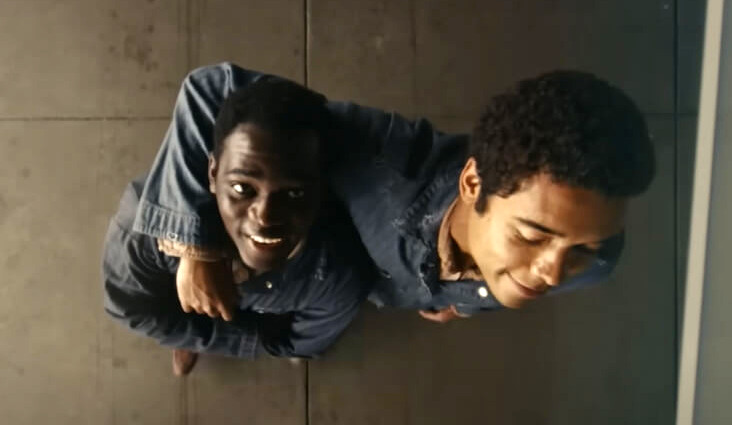
They look innocent, right? And why shouldn’t they? Two young guys growing up in the late ’50s to early ’60s contemporaneous to the launch of the U.S. space program — where the sky was literally the limit — shouldn’t look any other way. But things on the ground were very different for some.
Innocence was disallowed for Elwood (Ethan Herisse) and Turner (Brandon Wilson), who, separately, slip with ease onto the wrong side of the system in Florida of the bad old days. For them, life is nonsensically harrowing at the edges, a tightrope walk between way-stations of sanity in their own community and a war zone elsewhere. In director RaMell Ross’s superb filmic rendering of Colson Whitehead’s distinguished book, Elwood and Turner find themselves entrapped in a punitive boy’s reformatory school — there’s no way out. Elwood believes in the possibility of seeking justice, Turner doesn’t. What’s so special about NICKEL BOYS is its experimental style of filming, in first-person perspective, so we do not see the face of our sensitive hero, Elwood, until nigh halfway through the movie. NICKEL BOYS, the film, is lengthy and would improve with editing. But I found its use of the immersive perspective and its elusive-yet-poetic imagery deeply entrancing. I admit to having never felt as viscerally what it is to live with black skin in a relentlessly racist society as I did watching this movie. Upsetting. But recommended.
NICKEL BOYS | in theaters December 13
